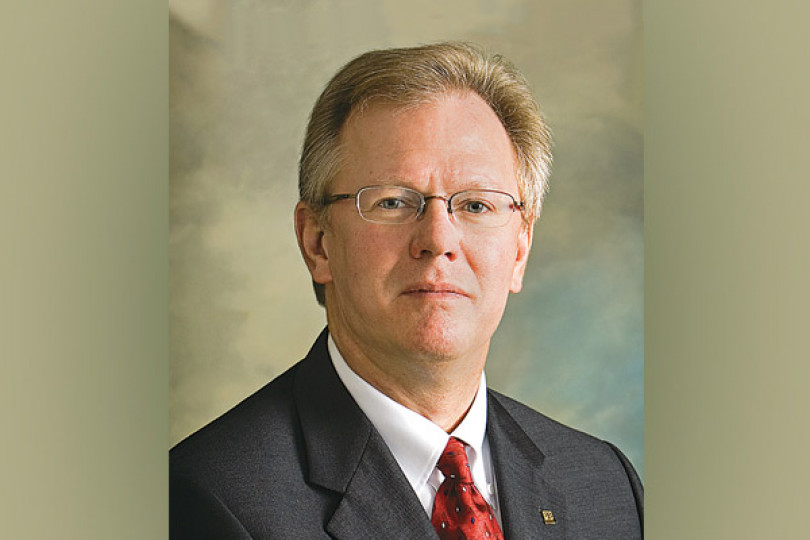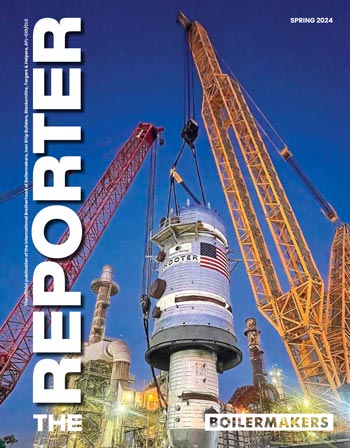Unions continue to have key friends in government
WHEN A SPLIT 112th Congress begins session in January — with the GOP in firm control of the House and Democrats holding a slim majority in the Senate — we can expect labor opponents to block key legislative initiatives backed by unions. The Employee Free Choice Act (H.R. 1409) will not go forward. Nor will the American Clean Energy and Security Act (H.R. 2454) or the Miner Safety and Health Act of 2010 (H.R. 5663).
These were some of our highest priorities. Free Choice would have given workers the ability to organize with much less interference and coercion from employers. A comprehensive energy bill would have promoted advances in clean technology, reducing emissions while creating an incredible amount of work for our construction members. And the Miner Act would have offered stronger protections for our coal mining members, who work under MSHA, and all workers covered by OSHA.
Unfortunately, these initiatives will be replaced with a flurry of anti-worker legislation at both the federal level and the state level, where labor-backed candidates also suffered major losses. Right to work (for less) and paycheck deception, as well as attacks on prevailing wage, project labor agreements, and public sector jobs, will be pushed by labor’s opponents.
Although these are serious and troubling developments, workers can still hope to preserve recently-won achievements and continue to make progress. Calls for repeal of the Affordable Care Act and Wall Street reforms are likely to fail. American workers will strongly resist handing over protections for patients with pre-existing conditions, extended coverage for children until the age of 26, and prescription drug assistance for seniors caught in the “donut hole.” And workers will not want to give up regulations designed to keep Wall Street from doing major harm to our economy in the future. GOP efforts to take these protections and benefits away from Americans will surely backfire.
Despite the midterm losses, organized labor continues to have valuable friends in Washington and at the state and local levels. What cannot be achieved through legislation may, in part, be accomplished through other means.
Pro-labor president sets tone for governance
SINCE HIS INAUGURATION on Jan. 20, 2009, President Barack Obama has been the driving force behind labor’s successes in Washington. Shortly after taking office, he set the tone for labor’s place in society, telling America, “I do not view the labor movement as part of the problem. To me, it’s part of the solution.”
Our union and the rest of organized labor will not give up on our legislative goals simply because the going got tougher.
Obama followed those words with action. He issued executive orders that promote project labor agreements, protect the jobs of current employees when federal contractors receive new contracts, and deny paying federal contractors for expenses related to their union-busting activities. Some of Obama’s executive orders reversed anti-union directives made by former President George Bush. Obama’s executive orders will remain in full force while he holds office.
Important not only for union members but for the entire country, Obama took bold steps to stabilize the economy through large-scale investments in infrastructure, unemployment benefits, and job preservation — even while his opponents offered no solutions and no support. Many thousands of good union jobs in the auto industry, law enforcement, education, and other areas survived because of those investments.
Obama’s continued championing of unions will remain critical to our success going forward.
Agency appointments will help labor
ONE OF THE key powers of a president is the ability to make appointments to federal agencies. Here again, Obama demonstrated his commitment to supporting working people by naming Hilda Solis to head the Department of Labor (DOL) and Craig Becker and Mark Pearce to the National Labor Relations Board (NLRB). Solis has long been an advocate for worker issues; Becker and Pearce are labor lawyers who have practiced on the union side for years.
What these appointees bring to the federal government is an appreciation of the role that unions play in representing workers and the challenges that unions face when laws and policies are stacked against them. The DOL and NLRB have the ability to create new rules and set new policies to even out an unlevel playing field.
Businesses and their allies are keenly aware of how important agency appointments can be. Attorneys Ilyse Schuman and Jay Sumner, writing for Littler, a management-side labor law firm, recently stated:
It is still possible for some of EFCA’s [Employee Free Choice Act] objectives and organized labor’s agenda to be implemented without congressional action through rulemaking and NLRB decisions...For example, [NLRB] member Pearce recently stated that he favors shorter election periods. The Board is also considering the use of electronic and Internet voting in representation elections...[and] recently announced changes that will bring about enhanced penalties for violations of the...NLRA [National Labor Relations Act].
The Littler article also expressed concerns that the DOL could toughen reporting requirements on management when union-busting companies are brought in to disrupt union elections or help employers during lockouts — and that agencies may get tougher on safety and wage-and- hour enforcement.
Of course, Republican lawmakers and business groups continue to contest what they perceive as “excessive regulations” by the Obama administration. In the run-up to the midterm elections, U.S. Chamber of Commerce CEO Tom Donohue claimed, “The regulatory impact on the business community is pervasive, insidious, and needs to be exposed.”
With all due respect to Mr. Donohue, what needs to be exposed is businesses’ indifference to the safety and well-being of their employees — and in some cases their outright negligence. It is a legitimate function of government to protect workers from employer abuses. It is also a legitimate function of government to protect the American public from the excesses of Wall Street.
Labor is not about to give up
Congress may well spend the next two years in gridlock, but we can expect the nation’s federal agencies to continue carrying out their responsibilities in support of the president’s labor and employment goals.
And although Republicans are making loud noises about repealing health care reform and undoing other legislative achievements under the Obama administration, it is not likely they will succeed to any large degree. The Affordable Care Act will no doubt be modified and perhaps improved. But Americans won’t want to lose important new benefits under the law.
Our union and the rest of organized labor will not give up on our legislative goals simply because the going got tougher. We still have friends in Washington. And we have a long history of fighting to advance the well-being of our members and all those who labor for a living.







